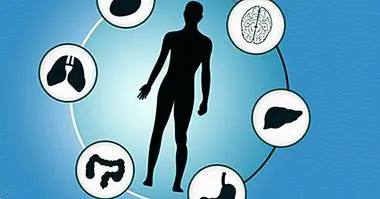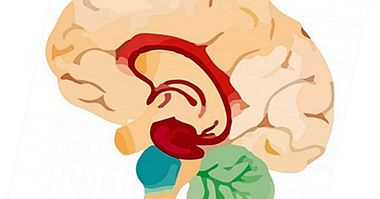Listen to music to alleviate Alzheimer's symptoms
The auditory memory is in an area of the brain different from that of the rest of memories according to, specifically in the area of the temporal lobe that is located near the temple and the ear.
Although this area is one of the first to be affected by the Alzheimer's and that under the effects of this disease many sick people do not know their own name, nor recognize their closest relatives (spouses, children, siblings ...), it is common for people with this dementia to remember songs such as they will listen a long time ago, in their earliest youth. How is it possible that many do not have the ability to speak but can hum songs and get excited about them? Let's start with the basics.
Alzheimer's: what is it?
Alzheimer's, or senile dementia of Alzheimer's type, is a neurodegenerative disease that causes severe damage to the brain , killing the nerve cells and breaking the connections between them, which produces an irreversible affectation of cognition, behavior and, usually, of immediate memory. However, the intervention based on music therapy can help in its treatment, despite not getting to cure the disease.
It is the most common type of dementia in terms of epidemiology; It is a devastating disease, not only for the sufferer, but also for the relatives of the patient who observe how their relative deteriorates and how to be an independent and autonomous person becomes a completely dependent being.
Even so, in the area in charge of processing and storing the music it seems that the affectation is less than in the rest of the areas. Recent studies by neurologists conclude that, for the most part, patients with an advanced level of this ailment maintain their musical memories . In this way, music can help them to relax and improve their mood. In this sense, music therapy is a good option to alleviate the effects of Alzheimer's.
What is music therapy?
Music therapy is the use of music in interventions carried out in medical, educational and daily settings . It can guide both individuals, groups or communities with the aim of improving their quality of life in different aspects.
The use of music therapy is increasing more and more in the treatment of Alzheimer's, as well as in the intervention on other types of neurological disorders, such as depression, Parkinson's, schizophrenia and amnesia. One of the greatest advantages of music therapy is that any family member or caregiver can practice it at home with the patient.
How are music therapy sessions performed?
The therapy is carried out in a group, the therapists previously investigate about the patient's musical biography, asking their relatives and finding out what musical style it is that the patient used to listen to, or what song has a special meaning for him, that is, what The song or theme is linked to a memory that in turn represented a vital experience for the patient. For example, the song that was heard when he met what would be his future wife or that melody of an old turntable that he heard in his childhood during the summer break ... the examples are countless.
A melody or song in particular is a link to past memories in the form of deep-seated feelings and emotions in our mind. This is because we are emotional beings; let us not be fooled by antiquated beliefs that define the human being as a rational animal, emotions are very powerful and they precede ideas, since ideas can change depending on the emotions we feel. In addition, patients can be invited to dance, in such a way that their physical condition improves and they interact socially.
The effectiveness of music therapy
Research has focused on determining the efficacy and physiological mechanisms that produce a considerable improvement in the symptoms of the disease. It is proven that music therapy improves patient care and mitigates negative symptoms such as irritability, anxiety and sadness.
In an investigation it was determined which areas of the brain were activated when listening to music and later it was analyzed if the aforementioned areas presented a deterioration or on the contrary if they resisted more the advance of the neuronal degradation caused by Alzheimer's. It was concluded that neuronal stimulation through music produces benefits at the cognitive level , that is, it improves concentration and orientation in reality as well as maintaining the skills of verbal communication and communication.At the physical level, it produces a sedative effect, and at a social-emotional level, self-esteem increases, social interaction improves and prevents isolation and loneliness. As it is commonly said, "music is the medicine of the soul".



















